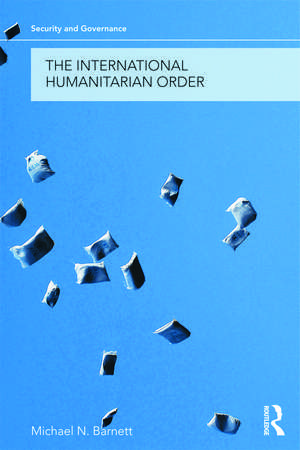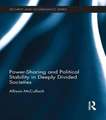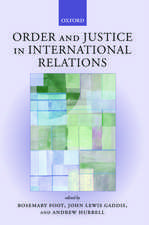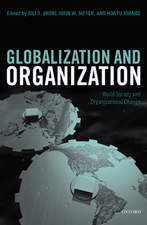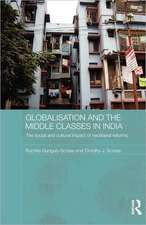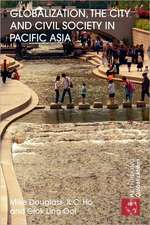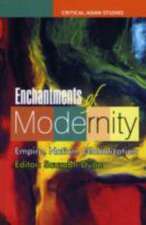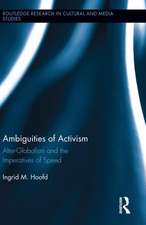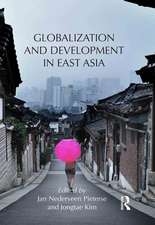The International Humanitarian Order: Security and Governance
Autor Michael Barnetten Limba Engleză Paperback – 4 dec 2009
Featuring previously published and original essays, this collection offers a critical assessment of the practices and politics of global ethical interventions in the context of the post-cold war transformation of the international humanitarian order. After an introduction that introduces the reader to the concept and the significance of the international humanitarian order, Section I explores the braided relationship between international order and the UN, whiles Section II critically examines international ethics in practice. The Conclusion reflects on these and other themes, asking why the international humanitarian order retains such a loyal following despite its flaws, what is the relationship of this order to power and politics, how such relationships implicate our understanding of moral progress, and how the international humanitarian order challenges both practitioners and scholars to rethink the meaning of their vocations.
| Toate formatele și edițiile | Preț | Express |
|---|---|---|
| Paperback (1) | 433.26 lei 6-8 săpt. | |
| Taylor & Francis – 4 dec 2009 | 433.26 lei 6-8 săpt. | |
| Hardback (1) | 1056.28 lei 6-8 săpt. | |
| Taylor & Francis – 7 dec 2009 | 1056.28 lei 6-8 săpt. |
Preț: 433.26 lei
Nou
Puncte Express: 650
Preț estimativ în valută:
82.90€ • 86.79$ • 68.60£
82.90€ • 86.79$ • 68.60£
Carte tipărită la comandă
Livrare economică 05-19 aprilie
Preluare comenzi: 021 569.72.76
Specificații
ISBN-13: 9780415776325
ISBN-10: 0415776325
Pagini: 240
Dimensiuni: 156 x 234 x 14 mm
Greutate: 0.39 kg
Ediția:1
Editura: Taylor & Francis
Colecția Routledge
Seria Security and Governance
Locul publicării:Oxford, United Kingdom
ISBN-10: 0415776325
Pagini: 240
Dimensiuni: 156 x 234 x 14 mm
Greutate: 0.39 kg
Ediția:1
Editura: Taylor & Francis
Colecția Routledge
Seria Security and Governance
Locul publicării:Oxford, United Kingdom
Public țintă
Postgraduate and UndergraduateCuprins
1. Introduction: The International Humanitarian Order Section 1: UN and World Order 2. Bringing in the New World Order: Legitimacy, Liberalism, and the United Nations World Politics 3. The New U.N. Politics of Peace: From Juridical Sovereignty to Empirical Sovereignty." Global Governance 4. The United Nations and Global Security: The Norm is Mightier Than the Sword 5. Humanitarianism with a Sovereign Face: UNHCR in the Global Undertow Section 2: The Ethics of Intervention 6. The Politics of Indifference at the United Nations: The Security Council, Peacekeeping, and Genocide in Rwanda 7. UNHCR and the Ethics of Repatriation. 8. Building a Republican Peace: Stabilizing States After War 9. Humanitarianism Transformed. 10. Conclusion: Beyond the International Humanitarian Order?
Recenzii
In this outstanding collection of new and previously published essays, one of the leading scholars of the international humanitarian order takes stock of developments that have been vastly consequential since the end of the Cold War. In developing his arguments Michael Barnett is intellectually incisive and politically astute. This book is required reading for all who are interested in the profound changes that have affected world politics during the last two decades.
Peter J. Katzenstein
Walter S. Carpenter, Jr. Professor of International Studies, Cornell University
Over the past fifteen years, Michael Barnett has emerged as the most thoughtful American scholarly voice on the dilemmas of humanitarianism. In these penetrating essays, he ranges widely, probing the role of political pragmatism and the impulse for moral transcendence in shaping contemporary humanitarianism.
Jack Snyder, Robert and Renée Belfer Professor of International Relations, Columbia University
Relying on personal experience and academic prudence, Barnett's collection does a wonderful job of interrogating the rise of the International Humanitarian Order. Always insightful but never losing balance and perspective, Barnett refreshingly focuses on the intermeshing of ethics and power and, in so doing, overcomes the one-sidedness of much of the thinking on this topic.
David Chandler, Professor of International Relations, University of Westminster
Barnett’s breadth of expertise is complemented by his practical experience and he thus conveys an authoritative analysis that is surely unique in academic literature...this is a provocative, compelling and indeed inspiring book.
Aidan Hehir, University of Westminster, Political Studies Review, Vol 10:3, Sept. 2012
This volume provides us a vital opportunity to think and rethink ethically about how we understand and practice humanitarian activies, how we place ourselves in this 'living humanitariansim', and how we face our own moral duties in international relations.
Madoka Futamura, United Nations University
Peter J. Katzenstein
Walter S. Carpenter, Jr. Professor of International Studies, Cornell University
Over the past fifteen years, Michael Barnett has emerged as the most thoughtful American scholarly voice on the dilemmas of humanitarianism. In these penetrating essays, he ranges widely, probing the role of political pragmatism and the impulse for moral transcendence in shaping contemporary humanitarianism.
Jack Snyder, Robert and Renée Belfer Professor of International Relations, Columbia University
Relying on personal experience and academic prudence, Barnett's collection does a wonderful job of interrogating the rise of the International Humanitarian Order. Always insightful but never losing balance and perspective, Barnett refreshingly focuses on the intermeshing of ethics and power and, in so doing, overcomes the one-sidedness of much of the thinking on this topic.
David Chandler, Professor of International Relations, University of Westminster
Barnett’s breadth of expertise is complemented by his practical experience and he thus conveys an authoritative analysis that is surely unique in academic literature...this is a provocative, compelling and indeed inspiring book.
Aidan Hehir, University of Westminster, Political Studies Review, Vol 10:3, Sept. 2012
This volume provides us a vital opportunity to think and rethink ethically about how we understand and practice humanitarian activies, how we place ourselves in this 'living humanitariansim', and how we face our own moral duties in international relations.
Madoka Futamura, United Nations University
Descriere
This book provides a critical exploration of the politics and practice of global ethical interventions. Organized in four parts Michael Barnett examines the tensions in the relationship between global governance, ethics, and international order.
